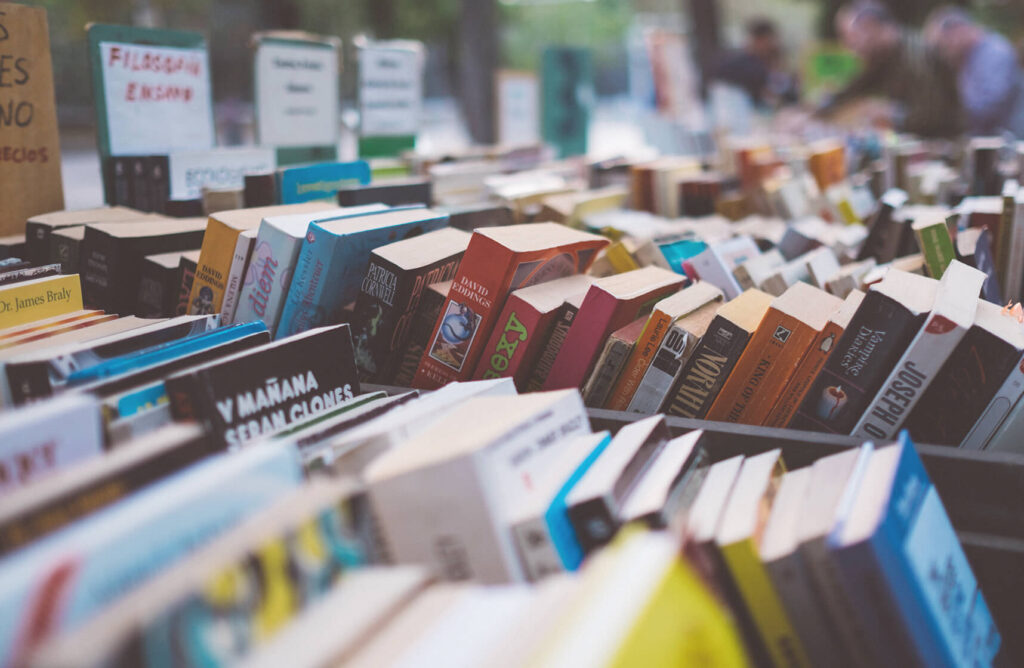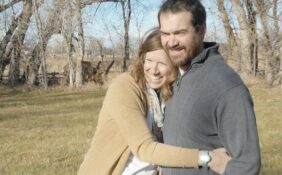Books to Read During Pregnancy for the Literary Mom-To-Be

When it comes to books to read during pregnancy, it seems there’s something for every category of mother-to-be. You’ve got books for the impatient, books for the anxious, and books for the hippie earth mama. But what about the woman who wants to become a mother, but also feels a little conflicted? If you’ve ever wondered about hanging on to your sense of self after the baby comes, or whether pregnancy will crush your sense of girlish freedom, you need a different kind of reading list.
In Morning Song, Sylvia Plath wrote that she was no more a mother than “the cloud that distills a mirror to reflect its own slow effacement at the wind’s hand.” In her day, there wasn’t really space to express feelings of maternal ambivalence, nor for greeting the arrival of one’s offspring with anything other than unconflicted joy. We’re lucky that things are different now.
If you’re one of the women who hungers for brooding, dark, and conflicted accounts of motherhood, you’re not alone, and you shouldn’t feel guilty. Becoming a mother has always been messy, complicated, and sometimes ugly business. Acknowledging it makes those feelings easier to live with when they inevitably appear.
On Pregnancy
A Wilderness of Waiting, Sarah Menkedick
Before gestation, I dominated time in the way I dominated my body. Long runs whittled the latter into sculpted hardness, and the discipline of schedules and fixed points – Saturday, summer, graduation – brought the former into focus as a series of arrows pointing always one towards the next. Time as trajectory, body as tool of the mind. And then this baby began growing and my body expanded into a force to which the “me” of my mind was subjugated, bobbing about unsteady and insignificant as a paper boat in surges of blood and hormones. Time yawned open, a vast canyon I fell into, with the erstwhile tidy arrows echoing off the walls.
Thanksgiving in Mongolia, Ariel Levy
But the truth is, the ten or twenty minutes I was somebody’s mother were black magic. There is no adventure I would trade them for; there is no place I would rather have seen.
Like a Mother: A Feminist Journey Through the Science and Culture of Pregnancy, Angela Garbes
“We are volcanoes,” wrote the American novelist Ursula K. Le Guin. “When we women offer our experience as our truth, as human truth, all the maps change. There are new mountains.”
On Birth
Get the Epidural, Jessi Klein
But here’s the thing: If you’re worried that skipping the pain of childbirth means you’re somehow cheating your baby, or yourself, you’re not. Because the truth is, life offers more than enough pain that you will not be able to skip.
Monstrous Birth, Sarah Blackwood
Children are little death machines, they rip through your body. They chew on you. They are animals. We are animals, left bloody and with vulnerable bellies sliced after a good fight.
A Birth Story, Meaghan O’Connell
I wished for a way to communicate pain more precisely than a scale of 1 to 10. But the scale is subjective, I longed to say. We have no way to know. I hated this. I said 7, 8. I didn’t know. It was the worst pain I’ve ever felt, but I have never had my arm cut off.
On Motherhood
The Blue Jay’s Dance, Louise Erdrich
What we profoundly need are rituals that regard the blood, the shock, the heat, the shit, the anguish, the glory, the earnestness of the female body.
A Life’s Work, Rachel Cusk
‘I sit gloomy as a cow in the corners of rooms, on park benches, in restaurants or the back seats of cars, my shirt unbuttoned. Nowhere, it seems, am I safe from the accusation of hunger.’
After Birth, Elisa Albert
A baby opens you up, is the problem. There’s before, and there’s after. To live in your body before is one thing. To live in your body after is another.
Of Woman Born, Adrienne Rich
It is the suffering of ambivalence: the murderous alternation between bitter resentment and raw-edged nerves, and blissful gratification and tenderness
The Argonauts, Maggie Nelson
Whenever anyone asked me why I want to have a baby, I had no answer. But the muteness of the desire stood in inverse proportion to its size.
Life Among the Savages, Shirley Jackson
I looked at the clock with the faint unconscious hope common to all mothers that time will somehow have passed magically away and the next time you look it will be bedtime.
Dept of Speculation, Jenny Offill
The days with the baby felt long but there was nothing expansive about them. Caring for her required me to repeat a series of tasks that had the peculiar quality of seeming both urgent and tedious. They cut the day up into little scraps.
And that phrase — “sleeping like a baby.” Some blonde said it blithely on the subway the other day. I wanted to lie down next to her and scream for five hours in her ear.
On Parenting in General
Bringing Up Bébé, Pamela Druckerman
When I tell her about the expression “MILF” (“Mom I’d like to Fuck”), she thinks it’s hilarious. There’s no French-language equivalent. In France, there’s no a priori reason why a woman wouldn’t be sexy just because she happens to have children. It’s not uncommon to hear a Frenchman say that being a mother gives a woman an appealing air ofplentitude (happiness and fulness of spirit).
All Joy and No Fun, Jennifer Senior
While children deepen your emotional life, they shrink your outer world to the size of a teacup, at least for a while.
Guidebook to Relative Strangers: Journeys into Race, Motherhood, and History, Camille T. Dungy
We are all telling the same story. When writing about race, there can perhaps be precious little wholly fresh revelation. As with writing about motherhood. It has been the same story for as long as anyone can remember.









